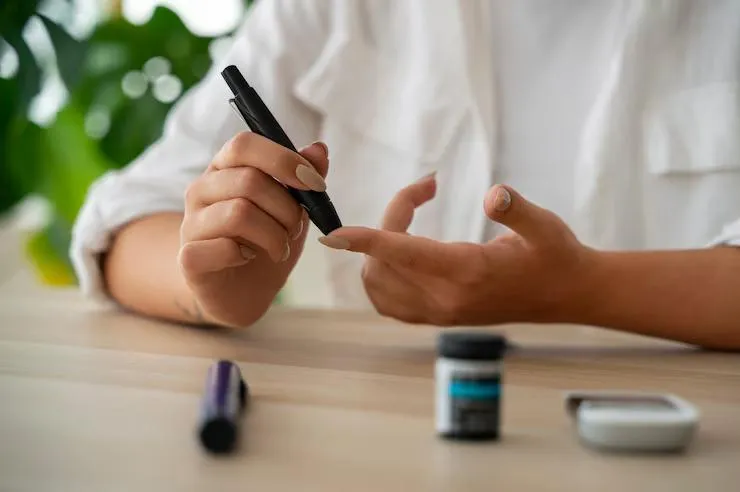
BLOGS

Does Type 2 Diabetes Require Insulin?
Type 2 diabetes is one of the most prevalent health issues today, affecting millions of people and their families worldwide. A key concern when addressing the condition is understanding whether insulin is necessary for managing it. This question is commonly asked by both newly diagnosed individuals and those who have been living with diabetes for years. In this blog, we will explore the nature of Type 2 diabetes, when insulin may be required, and how a diabetes specialist in Arizona can assist in effectively managing the condition.
Understanding Type 2 Diabetes
Type 2 diabetes is a chronic condition in which the body loses its ability to effectively use glucose as the primary energy source for its cells. Unlike Type 1 diabetes, where the body doesn’t produce enough insulin, Type 2 is characterized by insulin resistance. This means that although insulin is produced, the body’s cells do not respond to it as they should, leading to elevated blood sugar levels.
It may gradually fail to provide sufficient insulin, worsening the condition. Therefore, the problem of insulin resistance can result in complications if it is not well controlled.
Do All Type 2 Diabetes Patients Need to Take Insulin?
The question of whether or not Type 2 diabetes requires insulin to be handled correctly is a bit more complicated than the sure or no solution. The decision factor is dependent on several factors, including:
The Acuteness Of The Disease: In some patients diagnosed with Type 2 diabetes, blood sugar can be controlled by simply regulating their diet, complementing some oral medication. But if the power of the body to produce this hormone is damaged, then it becomes necessary to provide insulin treatment in this development of disease.
Blood Sugar Levels: If the high blood glucose level persists due to taking oral medication and making some kind of alteration in one's way of life, then the most necessary thing to keep this level within normal limits is insulin.
Duration of Diabetes: As time progresses, the pancreas’s ability to produce insulin gradually diminishes in individuals with Type 2 diabetes. While they may not require insulin therapy initially upon diagnosis, many eventually become dependent on it as the body's natural insulin production declines over time.
Other Diseases: Individuals having other diseases that include heart contamination or kidney problems can be put on insulin as part of their prescription in the earlier treatment plan.
When is Insulin Necessary in Type 2 Diabetes?
Lately, with the administration of insulin therapy in treating type 2 diabetes now being recommended at any point of care, some use one of these derivations;
First diagnosis: Some will have blood glucose very much increased, thus they will appreciate that blood glucose very much increased, appreciating that this means the pancreas is failing to produce enough insulin and that immediate treatment with insulin might be necessary.
Oral Medications Lose Their Efficacy: Almost all patients with Type 2 diabetes begin treatment with oral medications that either enhance the body’s response to insulin or stimulate the pancreas to produce more insulin. However, if these medications become less effective over time, insulin may be introduced as the next step in therapy to help manage blood sugar levels.
During Illness or Surgery: At times, such as during illnesses and times of surgery, insulin therapy might become necessary and temporary. Glucose levels are perpetually high in the body when under stress, which the insulin will try to regulate during such temporary times.
Pregnancy: Females with Type 2 diabetes will sometimes have to be switched to insulin during pregnancy to have reasonable blood glucose control for the excellent health of the mother and baby.
Progression of Diabetes: With type 2 diabetes, as one progresses, he can also come to be susceptible to insulin manufacturing and he'll then need insulin.
How Insulin Works to Manage Type 2 Diabetes
Insulin helps lower blood glucose by allowing glucose to enter cells and be used for energy. It can be administered as part of a treatment plan or as the primary therapy for many individuals with Type 2 diabetes. The goal of insulin therapy is to bring blood glucose levels as close as possible to those produced by natural insulin, helping to manage the condition more effectively.
There are several different kinds of insulin, each acting at a different speed and with different targets or things they are meant to do. A diabetes specialist in Arizona will assist in determining the best treatment and dosages to be used.
How to Control Type 2 Diabetes with or Without Insulin
For type 2 diabetes treatment, the practical method should involve a multifaceted approach to account for the following:
Diet: Eating nutrient-rich, balanced foods that include vegetables, protein, and whole grains can help maintain blood glucose levels. However, carbohydrate intake requires more careful monitoring.
Exercise: General body exercise promotes much more effective utilization of insulin, thus reducing blood sugar. A combination of both aerobics and resistance is advised.
Medications: Oral medications may be included to help regulate blood glucose, either alone or in conjunction with insulin. The medications must be taken on time and at regular intervals.
Regular Monitoring: Blood sugar can be regularly monitored to assess how well the management plan works. A glucometer could help.
Team Management in Healthcare: A diabetes specialist in Arizona could do so much, so the patient could receive individualized attention and advice. Regular checkups, such as monitoring blood sugar levels, are very effective in managing the condition because, in most cases, the treatment will have to be altered if the disease has reached a certain level.
Overview of Lifestyle Interventions
Even when insulin is necessary, lifestyle interventions remain essential in managing Type 2 diabetes. Weight loss, a balanced diet, and regular exercise enhance tissue sensitivity to insulin, potentially reducing the amount of insulin needed. These lifestyle changes can significantly improve overall health and contribute to better long-term diabetes management.
These lifestyle changes can also help avoid complications related to type 2 diabetes insulin, such as heart disease, nerve damage, and kidney problems. It is also important to control stress conditions and have adequate sleep because both can influence blood glucose levels.
Conclusion: Personalized Approach to Insulin in Type 2 Diabetes
Whether insulin is needed for Type 2 diabetes depends on an individual's specific circumstances and health requirements. While not everyone with Type 2 diabetes will require insulin, it can be a crucial tool for some in managing their condition and preventing serious complications. Each patient's situation is unique, and the decision to use insulin should be made in consultation with healthcare professionals.
The integrated, personalized treatment approach can be best realized through very close collaboration with a diabetes specialist Arizona to effect the most effective treatment plan possible. Thus, integrating medical treatment with healthy life options allows a person with type 2 diabetes to better control blood glucose levels and, in general, live a more healthy and active life.
Welcome to Gilbert Integrative Medical Center, your trusted source for comprehensive diabetes care in Arizona. Request an appointment online or by phone today.
Contact Us
Email: support@gilbertimc.com
Address:
2451 E Baseline Rd #100
Gilbert, AZ 85234
Phone Number:
Stay Connected:
Visit Us
Contact Us
Email: staff@wellness1stimc.com
Address:
2451 E Baseline Rd #100
Gilbert, AZ 85234
Phone Number:
Copyright 2024 . All rights reserved



